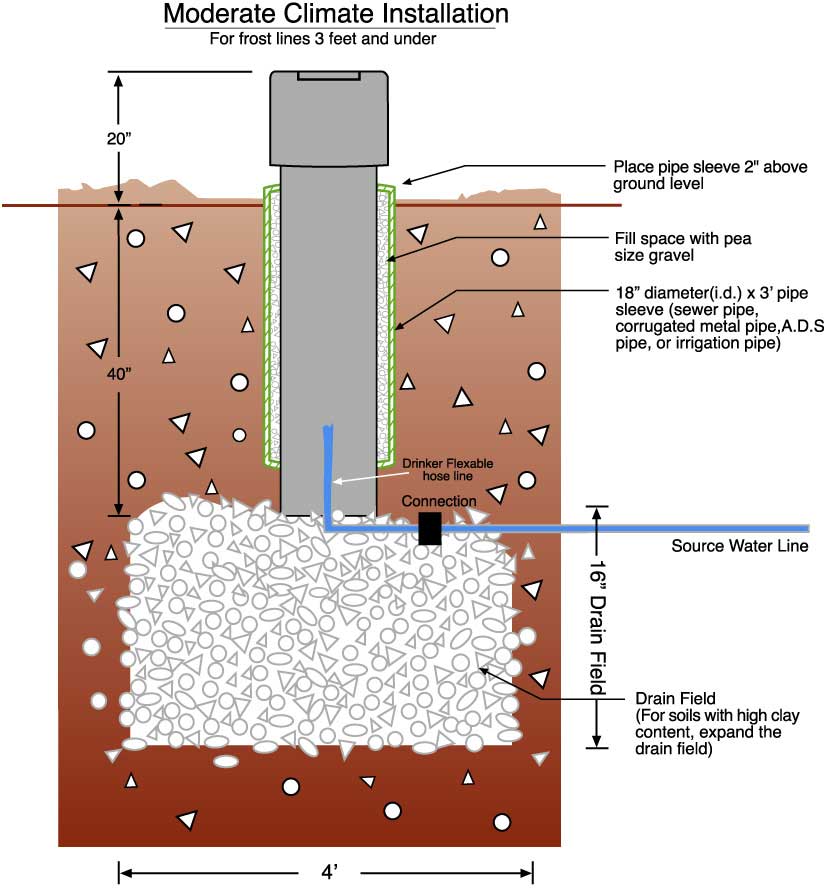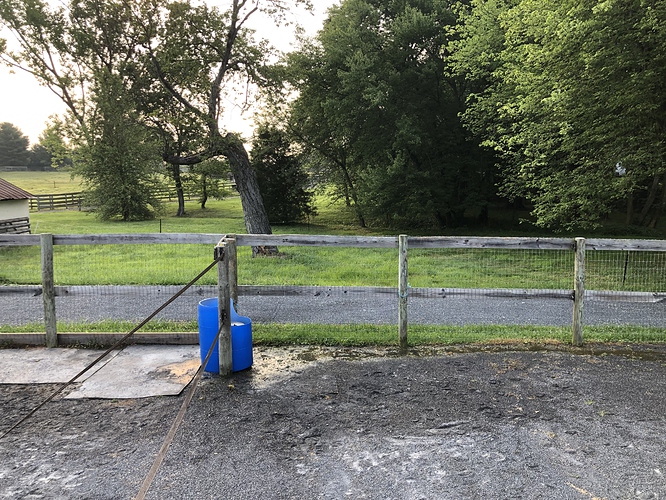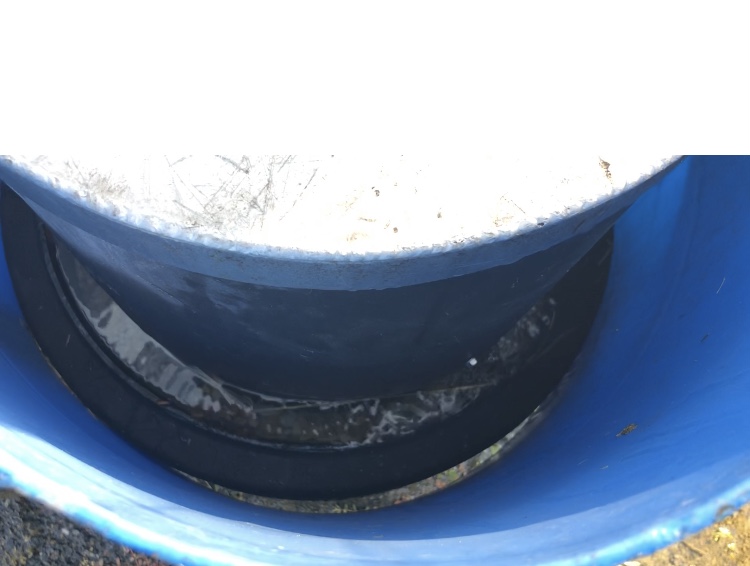Yesterday I discovered that the Bar Bar A waterer behind my barn was overflowing and leaking water all over the place. It’s not the drinking bowl overflowing. Rather, water is filling up the large tube in which the waterer sits, which goes down to the buried drain field. I pulled the waterer out to inspect it and everything is functioning normally with no leaks. I pumped water out of the tube as far as my pump could reach (about 3.5 feet down) and could not see any damage to the water supply hose, but the hose continues out of reach/sight and I was not able to pump all the way to the bottom of the well so I can’t really be sure. As soon as I stopped pumping the water level rose again, 3" per minute or so.
A milder version of this problem has been happening for the past 1-1.5 years. No dribbling water, but I would notice that the area around the waterer was sporadically damp and puddly even when it hadn’t rained. Last spring I spoke to Bar Bar A and the person who installed it, and the tentative conclusion was that the water table is high around there. There is a wet swampy area behind the waterer so that seemed reasonable-ish to me. Plus, if it were a leaking pipe I expect the area to be consistently wet. The Bar Bar A was installed in 2015 or 2016 and for the first few years I did not notice this issue. I am not sure if there is much correlation with rainfall or weather…I need to pay closer attention to that I guess. We did get about 1" of rain 3-4 days before I noticed this, some of which was very heavy.
This overflowing thing is a problem and I’m worried that if it’s not the water table, there is a damaged pipe or something that is out of reach and would require excavation to fix. Of course the way our property is set up you cannot turn water off to the barn only so the house would also be without plumbing during repairs. Sigh.
Has anybody had an issue where their Bar Bar A tube fills up with water and/or the ground surrounding the waterer gets damp or puddly? Any speculation on whether this is a leak vs. ground water?





 I turned the well pump off last night and the flow stopped, then returned some time after I turned the pump back on. I still think the very very sporadic dampness mayyyyy have actually had something to do with the water table because it’s been going on so long and the grassy area across the driveway from where the waterer is has always been prone to extreme swampiness, even before there was a water line in the area. But the new problem is definitely with the plumbing. I guess if the intermittent dampness stops after the leak is fixed, I will know for sure.
I turned the well pump off last night and the flow stopped, then returned some time after I turned the pump back on. I still think the very very sporadic dampness mayyyyy have actually had something to do with the water table because it’s been going on so long and the grassy area across the driveway from where the waterer is has always been prone to extreme swampiness, even before there was a water line in the area. But the new problem is definitely with the plumbing. I guess if the intermittent dampness stops after the leak is fixed, I will know for sure.